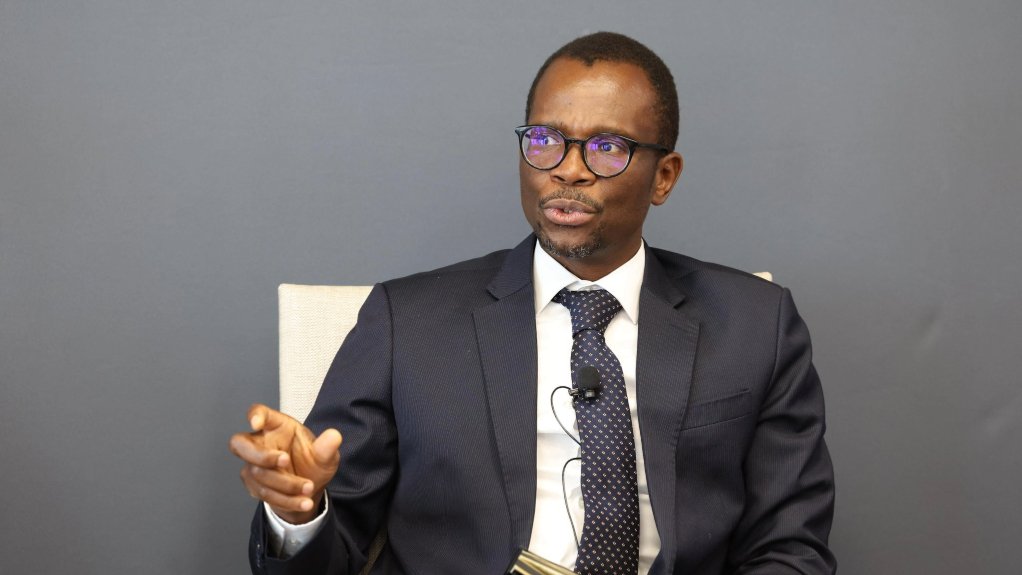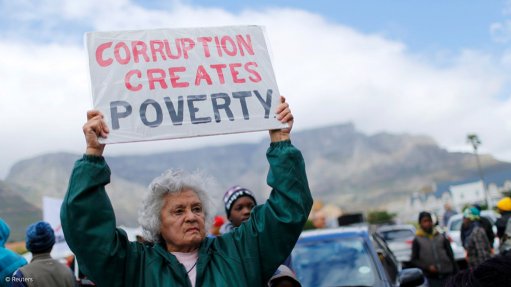PCC report highlights need to drastically increase yearly climate finance flows
The Presidential Climate Commission (PCC) has launched the third edition of its ‘South African Climate Finance Landscape Report’, which maps financial flows that supported South Africa’s climate response for 2022 and 2023.
The report provides empirical evidence on climate finance investment flows directed toward low-carbon and climate-resilient interventions in South Africa, along with key insights into the national policy environment, investment opportunities and barriers within priority end-use sectors.
Building on the previous edition (2019–2021) published in 2023, the 2025 report identifies sources and intermediaries of finance, the financial instruments used and sectors receiving climate-related funding.
In a media advisory, the PCC says this work provides an important baseline against which to measure progress towards investment levels consistent with South Africa’s national climate goals.
It also captures the years preceding the adoption of the Just Transition Framework (JTF), establishing a foundation for assessing the JTF’s impact on mobilising and scaling up finance for a just transition in the years ahead.
In the advisory, the PCC says the report launch marks a key milestone in its ongoing work to advance transparency and accountability in climate finance – building on its contributions to national policy and strategic frameworks such as the 2021 Nationally Determined Contribution (NDC), the 2022 JTF and the Just Energy Transition Investment Plan published in 2023.
During the launch of the report on October 24, it was revealed that, while South African climate finance flows show a positive upward trend, investment needs to increase at least two- to three-fold to meet its investment needs.
The report reveals that domestic sources contribute close to 60% of total climate finance. International climate finance sources, contributing the other 40%, are overwhelmingly made up of public contributions at 80.1%. Private capital remains under 20%.
The report notes that private domestic finance is led by commercial banks, corporations and individuals or households, driven mainly by investment into solar PV.
Additionally, it explains that climate finance flows into adaptation is lagging, with only 11.3% of tracked finance, driven primarily by public finance – 88%.
It notes that energy dominates climate investment, with a yearly average of R139.5-billion, predominantly into renewable energy electricity generation, and 89% of mitigation finance.
Estimates of climate finance needs in energy reveal a stark imbalance in that transmission and distribution remain severely underfunded.
Moreover, less than 10% of climate finance is directed toward water at R6.9-billion, transport at R2.6-billion and agriculture, forestry and fisheries at R4.2-billion.
Between 2019 and 2023, 18% of private capital in South Africa was mobilised through guarantees, of which about R4.4-billion, or 12.3%, was climate-aligned.
Just transition and climate-aligned investment is emerging but modestly, with a yearly average of R16-billion tracked, mostly from governments and development finance institutions.
The report also outlines key recommendations.
Immediate actions include enhancing climate finance data transparency and tracking; providing clear and stable policy signals for climate investment; expanding concessional and blended finance for adaptation and the just transition; deploying risk mitigation and management instruments to mobilise private capital; and strengthening project preparation, pipelines and institutional capacity.
The report also recommends structural reforms, including institutionalising climate finance governance and coordination; empowering municipalities and cities as climate finance actors; deepening domestic financial markets for climate investment; rewiring infrastructure systems to enable transition technologies; and leveraging international finance and partnerships.
Speaking at the launch, Finance Deputy Minister Dr David Masondo expressed that the report signifies a critical milestone in South Africa’s collective journey towards a just and sustainable transition.
“The report is more than a statistical exercise; it's a strategic tool that tracks how finance is being deployed for mitigation and adaptation and for the just transition. It is an important tool that identifies . . . progress, gaps and opportunities,” he said.
Masondo added that the report also aligned with the South African green finance taxonomy and best international experiences.
“Importantly, the release of this report comes at a pivotal moment, just ahead of South Africa's updated NDC.
“This timing is deliberate and strategic. The insights from this report will serve as a vital input into the updated NDC, thus helping us to share more ambitious evidence-based climate targets and the financial strategies required to achieve them. South Africa has moved from commitment to implementation in its climate response,” he said.
He noted, however, that climate finance flows remain insufficient to meet NDC and net-zero goals, reiterating that flows need to at least be doubled or tripled.
Masondo said that, under the G20 Presidency, South Africa has been advancing sustainable finance as a global priority.
“Through the G20 sustainable finance working group, we are promoting the alignment of financial systems with climate goals, we're promoting transparency in climate risk disclosures and scaled up finance for developing countries.”
He argued that international partners, especially through the just energy transition partnership, remain vital in providing concessional and catalytic finance, noting a significant gap for adaptation finance.
Masondo pointed out that only 11% of total flows are directed towards adaptation which he said is significantly below the African average.
“This underinvestment is a critical vulnerability, especially for vulnerable communities. The report shows that we need to do more on just transition finance,” he said.
With this in mind, he noted the need to finalise a national climate finance strategy that aligns with the just transition framework and supports the work of the Department of Forestry, Fisheries and the Environment.
He also argued that enhancing transparency and policy certainty by strengthening climate finance data systems and finalising key frameworks such as the Integrated Resource Plan are needed to accelerate progress.
“In collaboration with the National Treasury, we must advance the climate budget tracking to better track and align public spending with climate goals”.
He said this would improve transparency and support integration of climate priorities into fiscal planning.
He also argued for the scale-up of concessional and blended finance, particularly for adaptation and just transition sectors.
“We must mobilise private investment through targeted risk mitigation and innovative financing mechanism, we must strengthen institutional capacity, ensuring municipalities and project developers can access and deploy funding effectively.
“We must embed climate priorities into financial systems, infrastructure planning and governance structures,” he said, describing the report as a call to action.
“Together, we can shape a low-carbon, climate resilient future for South Africa, one that leaves no one behind,” he said.
Article Enquiry
Email Article
Save Article
Feedback
To advertise email advertising@creamermedia.co.za or click here
Comments
Announcements
What's On
Subscribe to improve your user experience...
Option 1 (equivalent of R125 a month):
Receive a weekly copy of Creamer Media's Engineering News & Mining Weekly magazine
(print copy for those in South Africa and e-magazine for those outside of South Africa)
Receive daily email newsletters
Access to full search results
Access archive of magazine back copies
Access to Projects in Progress
Access to ONE Research Report of your choice in PDF format
Option 2 (equivalent of R375 a month):
All benefits from Option 1
PLUS
Access to Creamer Media's Research Channel Africa for ALL Research Reports, in PDF format, on various industrial and mining sectors
including Electricity; Water; Energy Transition; Hydrogen; Roads, Rail and Ports; Coal; Gold; Platinum; Battery Metals; etc.
Already a subscriber?
Forgotten your password?
Receive weekly copy of Creamer Media's Engineering News & Mining Weekly magazine (print copy for those in South Africa and e-magazine for those outside of South Africa)
➕
Recieve daily email newsletters
➕
Access to full search results
➕
Access archive of magazine back copies
➕
Access to Projects in Progress
➕
Access to ONE Research Report of your choice in PDF format
RESEARCH CHANNEL AFRICA
R4500 (equivalent of R375 a month)
SUBSCRIBEAll benefits from Option 1
➕
Access to Creamer Media's Research Channel Africa for ALL Research Reports on various industrial and mining sectors, in PDF format, including on:
Electricity
➕
Water
➕
Energy Transition
➕
Hydrogen
➕
Roads, Rail and Ports
➕
Coal
➕
Gold
➕
Platinum
➕
Battery Metals
➕
etc.
Receive all benefits from Option 1 or Option 2 delivered to numerous people at your company
➕
Multiple User names and Passwords for simultaneous log-ins
➕
Intranet integration access to all in your organisation





















